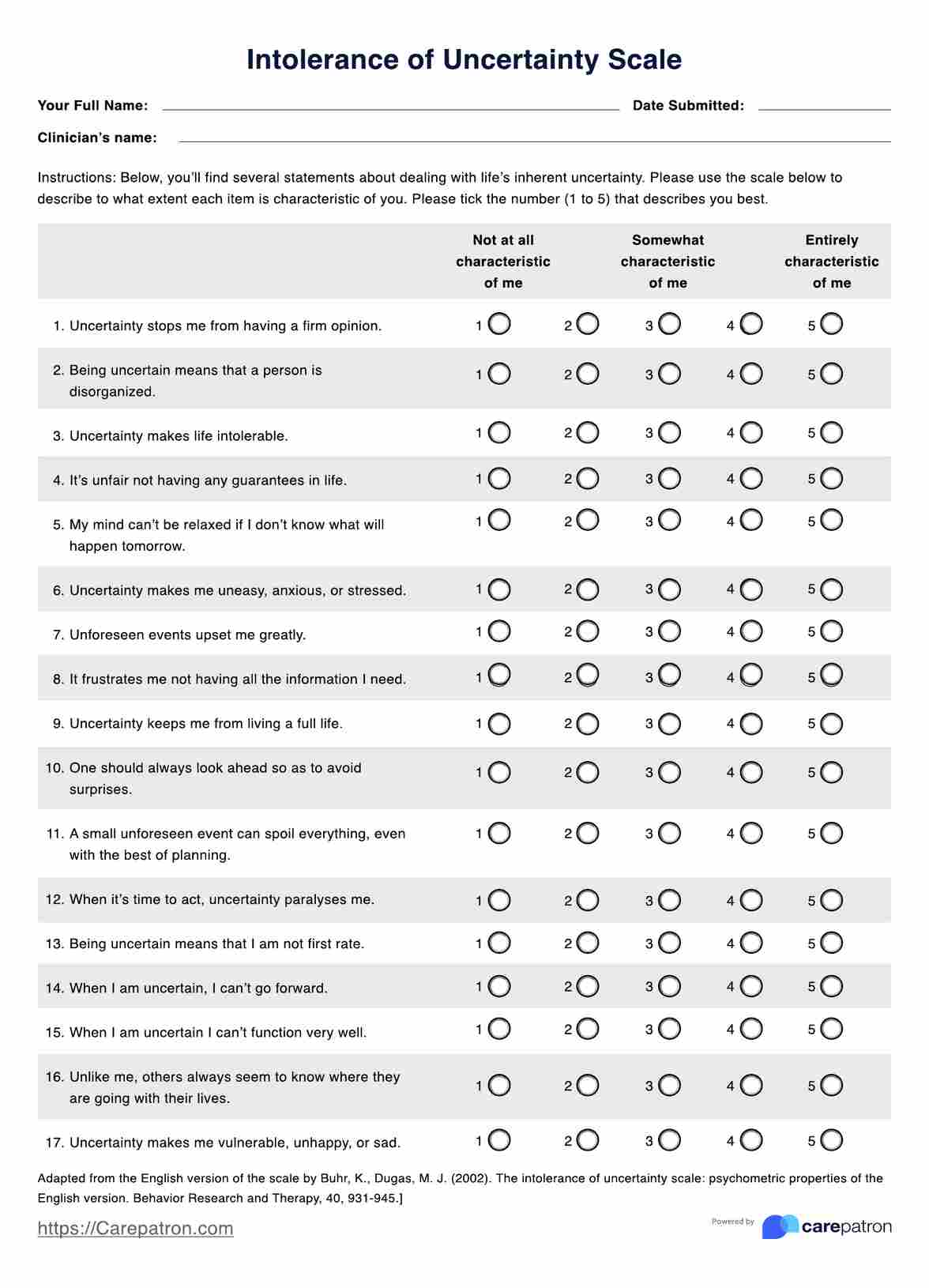It can be finished within ten minutes.

Intolerance of Uncertainty Scale
Gauge the degree of a patient’s intolerance of uncertainty using the Intolerance of Uncertainty Scale! Learn more about it through this guide.
Use Template
Intolerance of Uncertainty Scale Template
Commonly asked questions
The higher the score, the higher the severity of intolerance.
Yes, but please don’t make any medical-related decisions on your own or self-diagnose. If you believe that your intolerance for uncertainty has negatively impacted your mental well-being to the extent that it significantly affects your daily life, please see a professional so that you can have an expert help you work through issues related to your intolerance for uncertainty.
EHR and practice management software
Get started for free
*No credit card required
Free
$0/usd
Unlimited clients
Telehealth
1GB of storage
Client portal text
Automated billing and online payments











